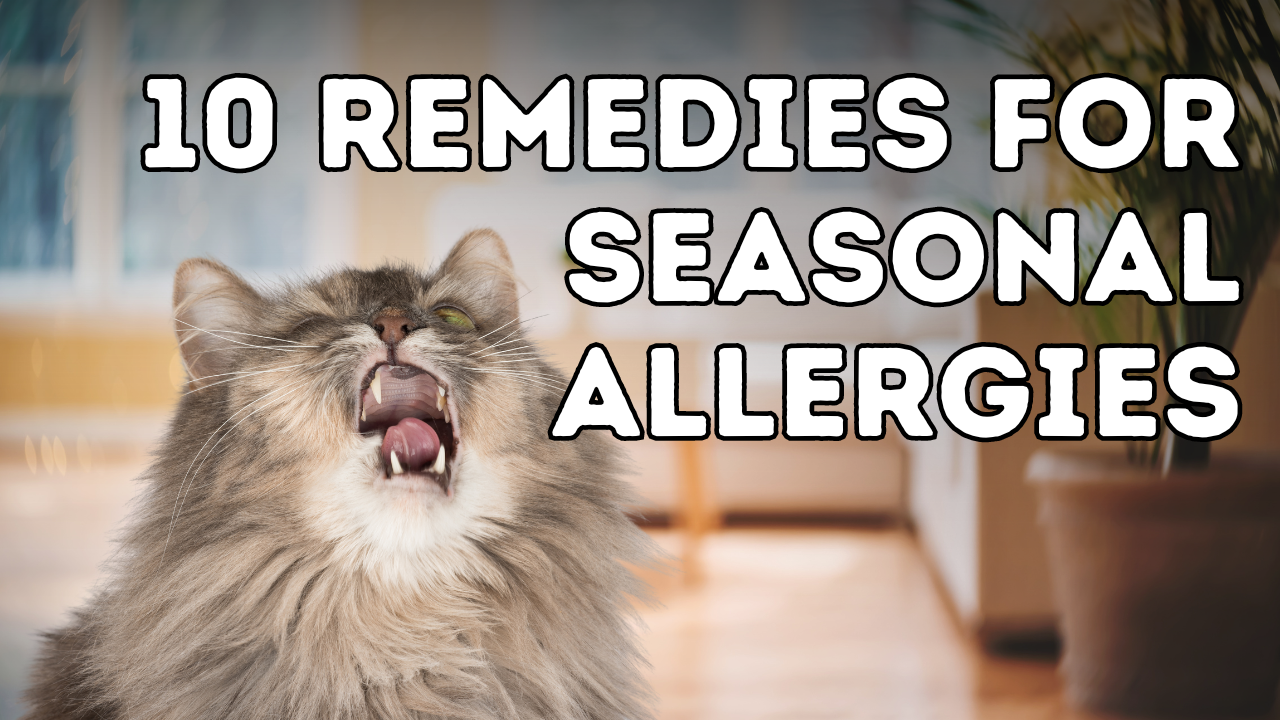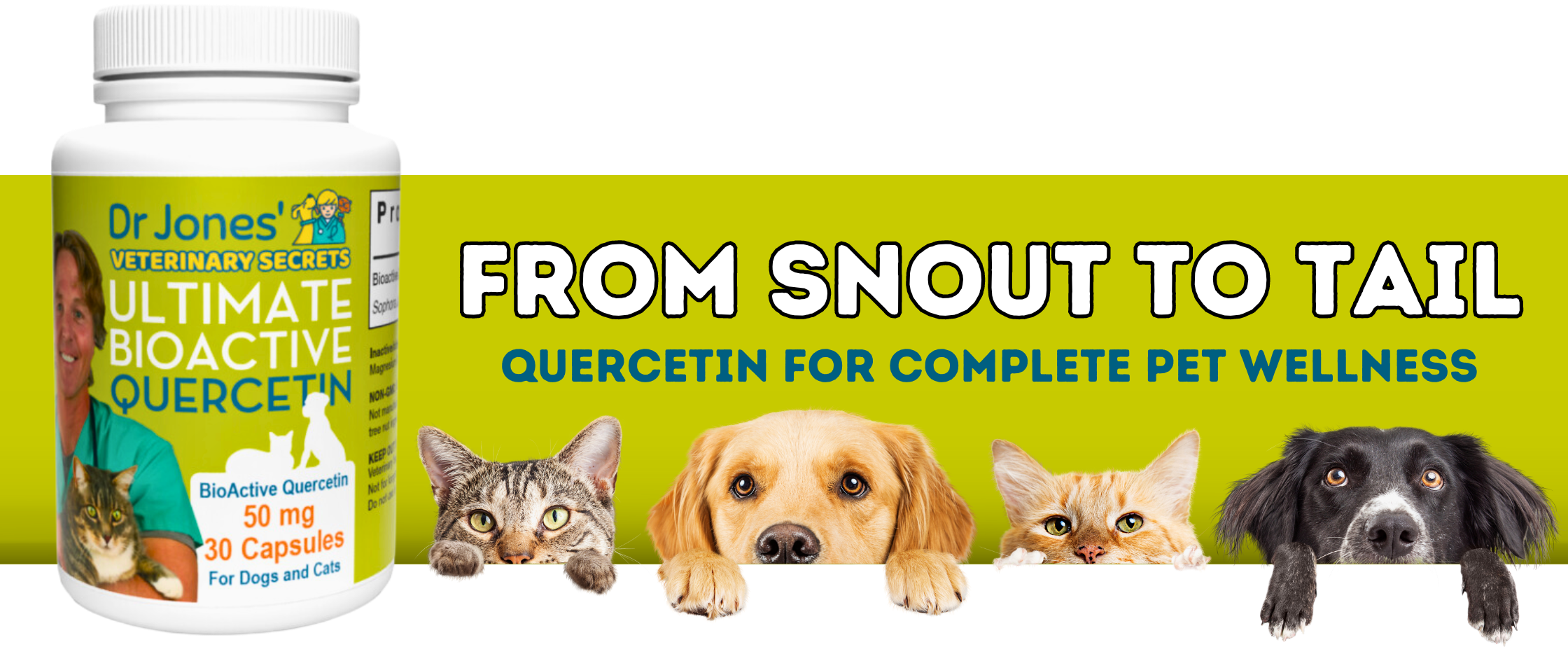Top 10 Natural Remedies for Seasonal Allergies That Really Work for Dogs and Cats

Dogs and cats show similar allergy symptoms as humans, yet they experience them most through their skin.
Excessive scratching likely means itchy, irritated skin. Not good 🙁


Seasonal Allergies in Pets: Effective Home Remedies
As a veterinarian with years of experience, I’ve seen how distressing seasonal allergies can be for both pets and their owners. Here, I’ll share insights on how to identify allergy symptoms in pets and offer some effective home remedies that I personally use and recommend.
Identifying Symptoms of Seasonal Allergies in Pets
Seasonal allergies, often referred to as atopy or environmental allergies, can manifest in pets through a variety of symptoms. These may initially be seasonal—linked to times when plants pollinate—but can become a year-round nuisance. Here are some common symptoms to watch for:
- Scratching and biting their coat or skin
- Red, inflamed, or infected skin
- Excessive shedding
- Compulsive paw licking in dogs
- Boot scoots or licking their anal glands
- Chronic ear infections or red, waxy ears, especially in dogs prone to ear problems
- Respiratory issues, such as difficulty breathing, coughing, or wheezing, more typical in cats
Though these symptoms are more prevalent in dogs, some cats do suffer from allergies as well.
Top 10 Effective Home Remedies for Pet Allergies
Over-the-Counter and Herbal Antihistamines
- Benadryl (Diphenhydramine): Commonly used at a dose of 1 mg per pound of body weight, administered 2-3 times daily.
- Cetirizine (Zyrtec): This 24-hour antihistamine has fewer side effects than Benadryl. The recommended dose is 5mg per 10lbs once daily. Always consult your veterinarian before starting any new medication.
- Herbal Options: Nettle (1 teaspoon per 10lbs daily) and quercetin, both known for their antihistamine properties.

Natural Anti-Inflammatory and Steroid Alternatives
- Licorice Root: Acts as a natural steroid. The dose is ½ ml per 20lbs twice daily of the tincture. Use with caution and not beyond 14 consecutive days, especially if there is underlying organ dysfunction.
- Curcumin: With 95% curcuminoids, it helps reduce itching and skin inflammation. Recommended dose is 100mg per 10lbs of body weight daily. You can find our bioavailable 95% curcumin here.
Additional Remedies
- Honey for Allergies: Local, unpasteurized honey can act as a natural desensitizer when given at ½ tsp. per 10lbs daily for 8-12 weeks.
- Homemade Topical Skin Cream: Effective for soothing irritated skin. Mix 2ml Licorice Root Tincture, 2 tablespoons of Coconut Oil, 1 teaspoon of Honey, and 10 drops of Lavender Oil.
- CBD (Cannabidiol): Useful for reducing inflammation and pain, available in doses of 3mg per 10lbs twice daily. Our CBD supplement is available here.
- Soy and Beta-sitosterol: This plant sterol helps reduce itchiness. The dose is 1-2mg per lb twice daily.
Supplements for Skin Health
- Bioflavonoids: Quercetin, a natural antihistamine, is beneficial for allergies and can be given at 100mg per 10lbs daily. Our Quercetin supplement is available here.
- EFA’s (Omega-3 Fatty Acids): Essential for reducing inflammation. The suggested dose for fish oil supplements is 1000mg per 20lbs of body weight daily. Krill oil may be more effective and is recommended at 500mg per 20lbs daily. Our Omega-3 Krill oil is available here.
Patient Approach
Addressing seasonal allergies in pets is a multifactorial challenge. It’s crucial to try a combination of two or three remedies and be patient until you find a mix that works best for your pet. Every pet is unique, and what works for one may not work for another. Stay observant and work closely with your vet to manage your pet’s allergies effectively.
